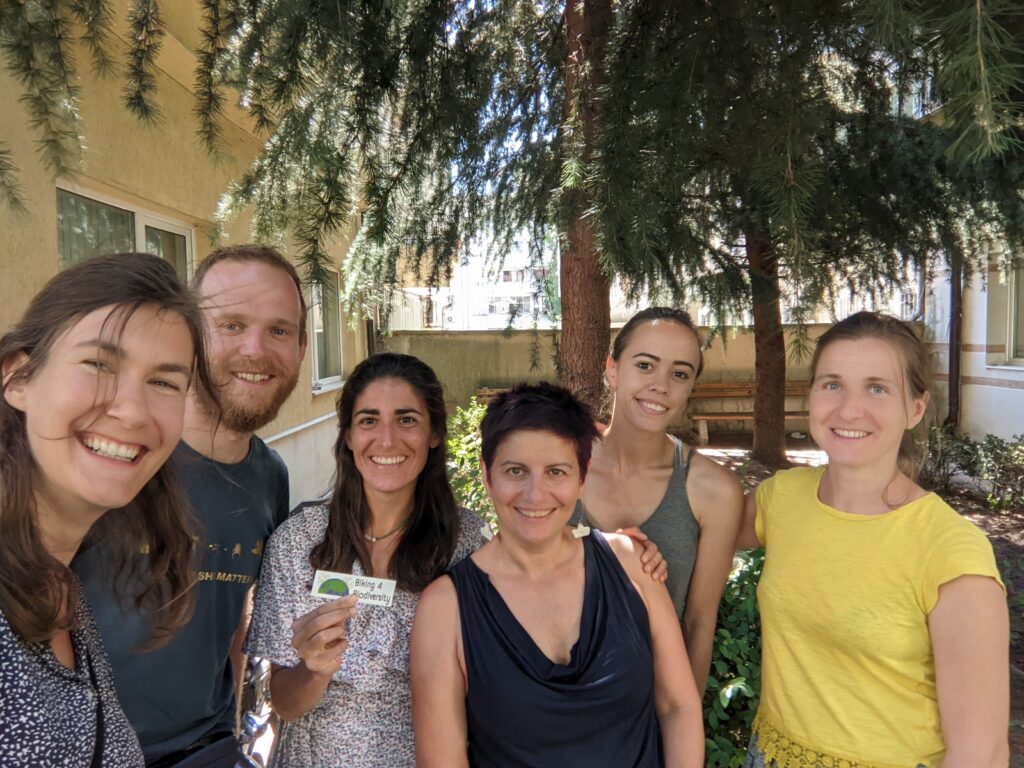Arriving in Bulgaria from Romania, we were curious to find out more about the nature protection efforts, especially along our route on the Black Sea coast. Bulgaria is the last post-communist, Eastern Bloc country on our journey before we enter Turkey and thus Asia, so we were eager to compare the state of nature to previously visited countries with similar history. Hence, we talked to Green Balkans as well as the Bulgarian Biodiversity Foundation (BBF), two of the biggest and oldest environmental NGOs of Bulgaria.
In our previous article, we wrote about our visit to the biggest ongoing conservation projects along the Black Sea coast, which focus on saving hypersaline lakes. After we spent a very informative morning with Green Balkans at Lake Pomorie, we continued cycling to Burgas, to visit the SymBiotic space, a kind of a visitor centre created by BBF, which hosts a very special exhibition about Lake Atanasovsko, the biggest hypersaline lagoon in Bulgaria. It is used to produce sea salt the traditional way without machines, but it is also an important hotspot for birds.
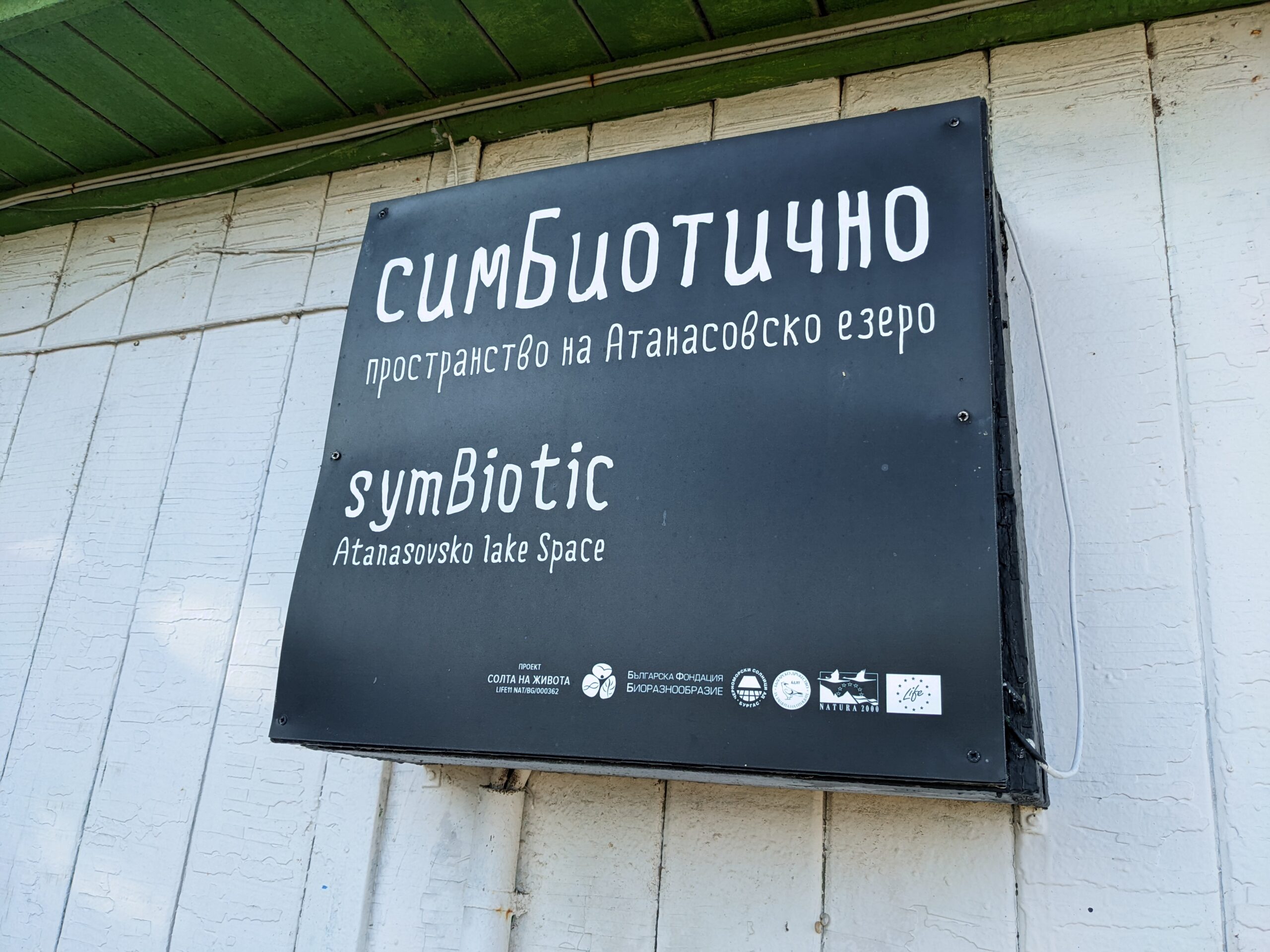
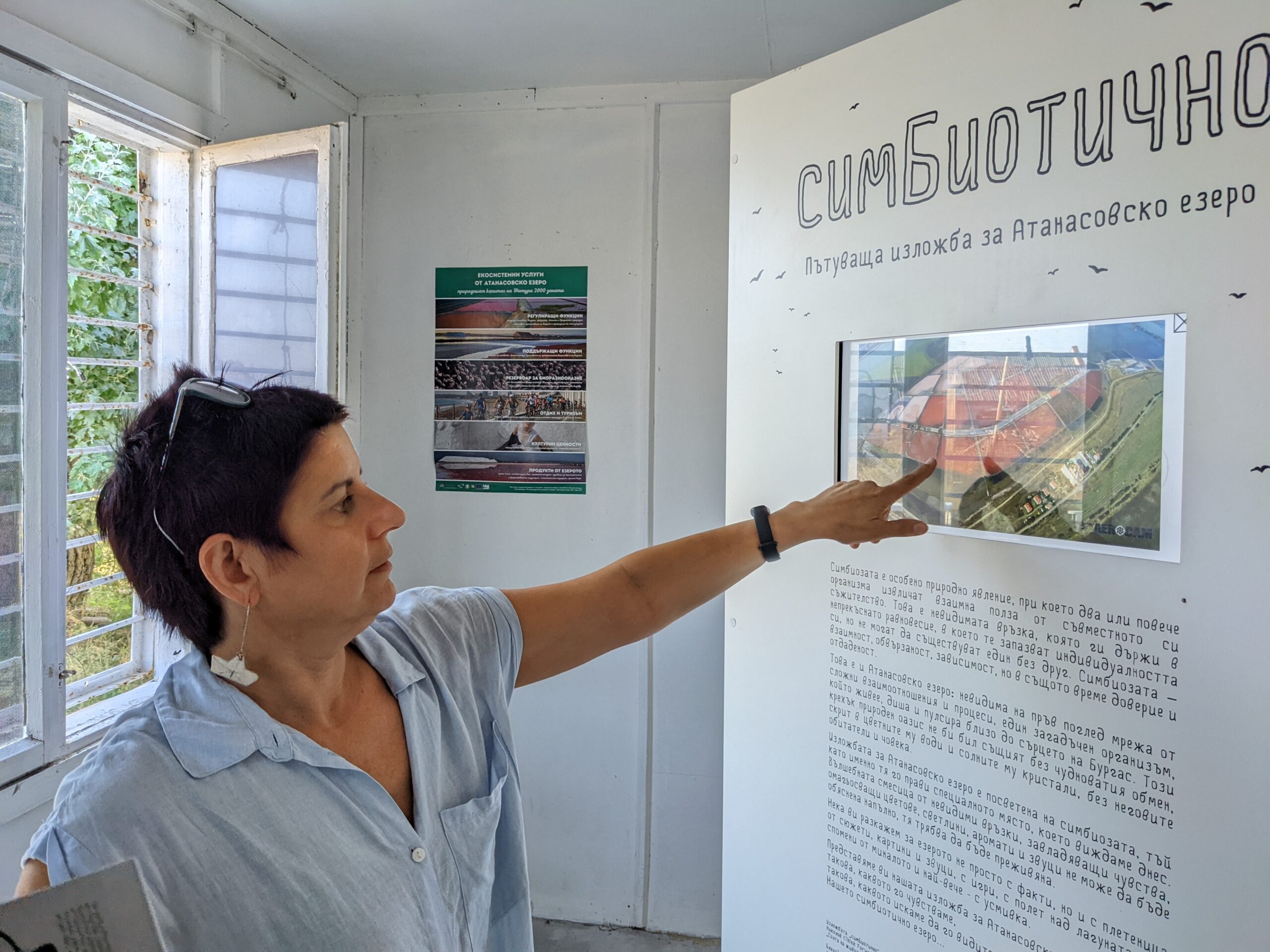
After learning about the benefits of these lagoons for both humans and wildlife, we got to spend more time with colleagues from BBF to hear what their main efforts are focused on. So, we were thrilled to join them for a morning session of picking glasswort (Salicornia europaea) on the shores of the lake.
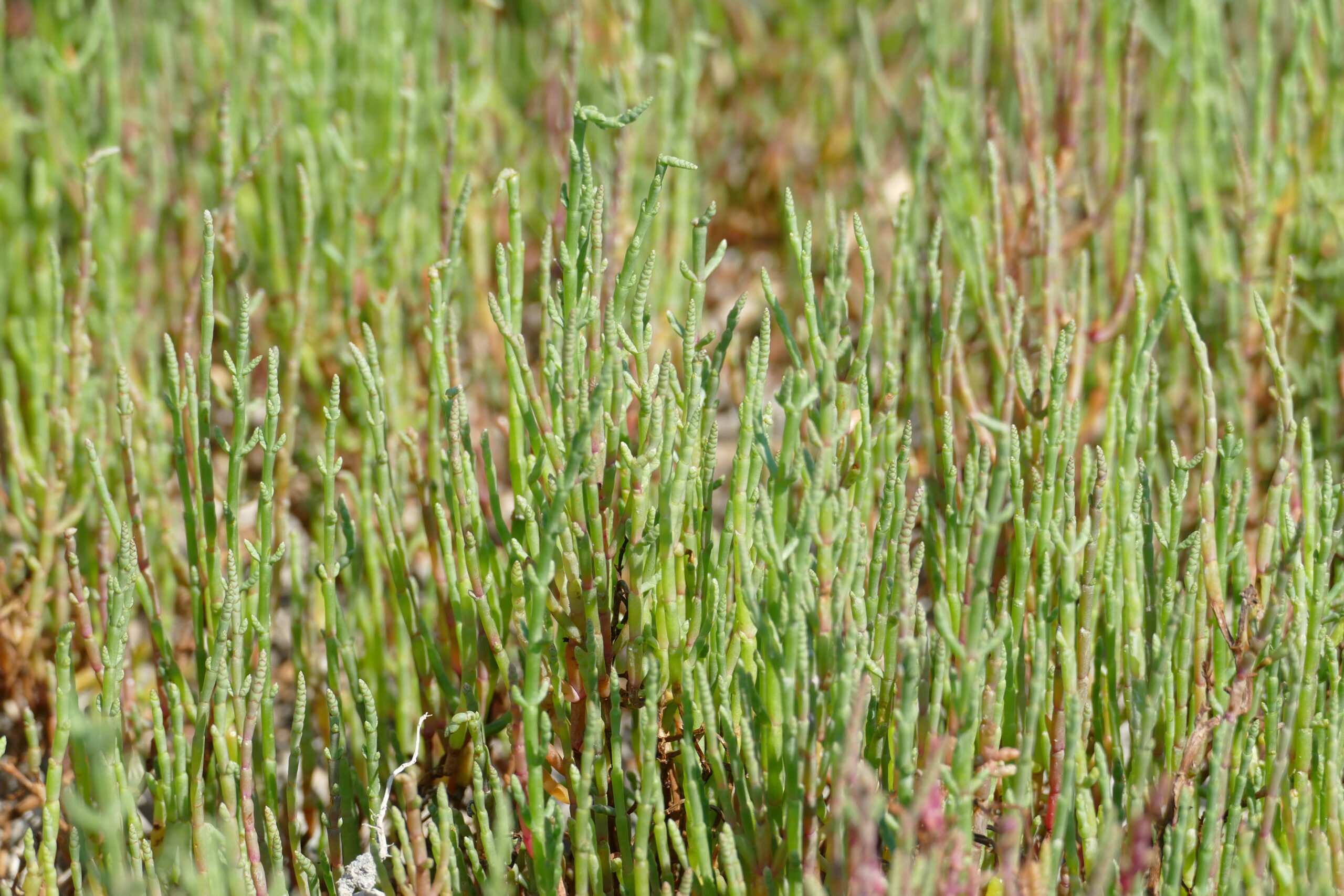
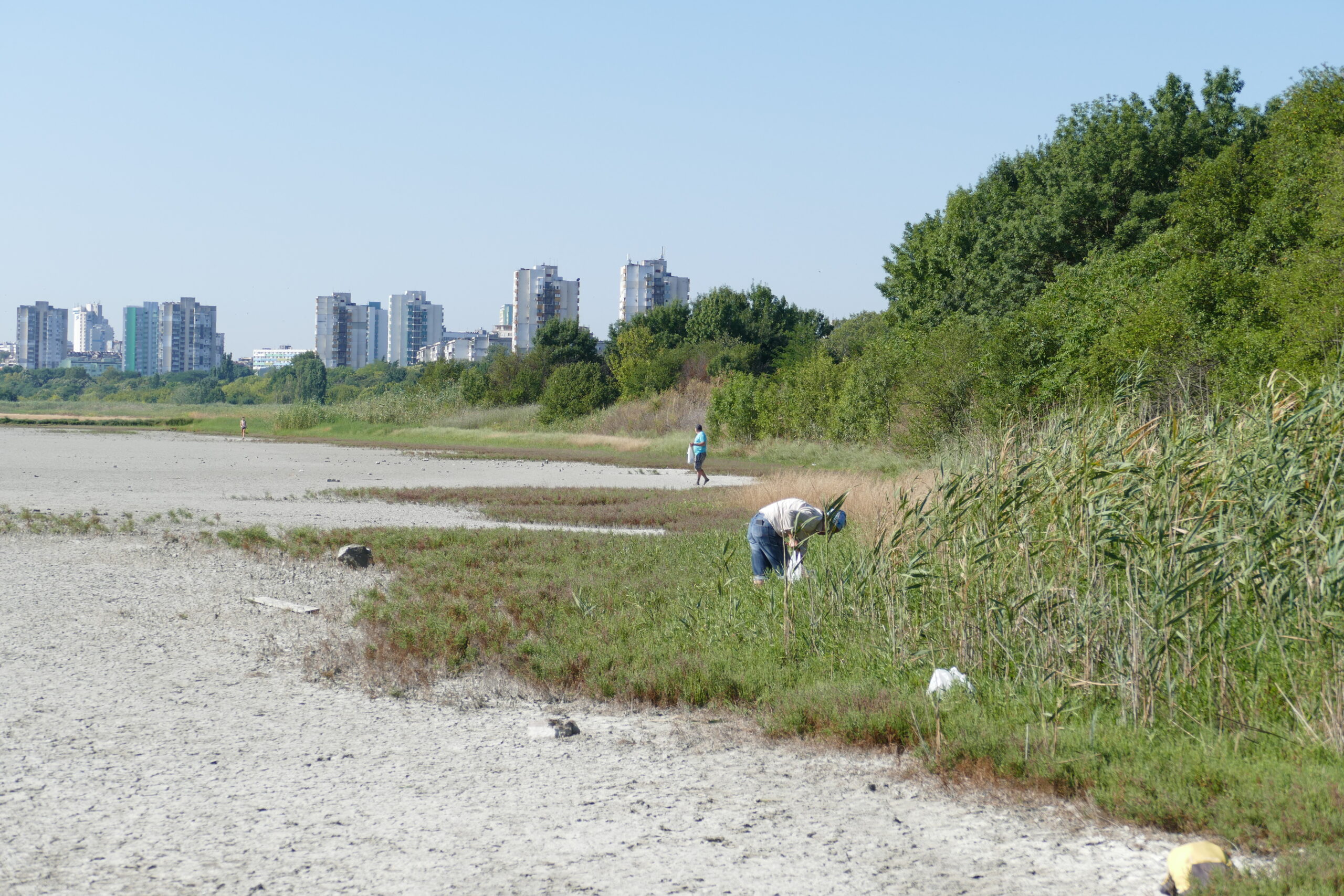
Can entrepreneurship help environmental conservation?
Glasswort is a lagoon plant native to Lake Atanasovsko and BBF does something very interesting with it. Salicornia is commonly used in salads and other foods in Italy and Portugal but this use is unknown in Bulgaria. Apparently, dried glasswort can be a healthy substitute for common salt, and BBF recently started marketing this “green salt”. Diyana tells us that ten kilos of glasswort yield about a kilo of fine green salt after the plant is dried for a week. Glasswort salt also has a 50% lower sodium content than common salt, it is an entirely natural product and tastes just as salty. We surely like the taste and happily munch on some fresh Salicornia, while talking about entrepreneurship.

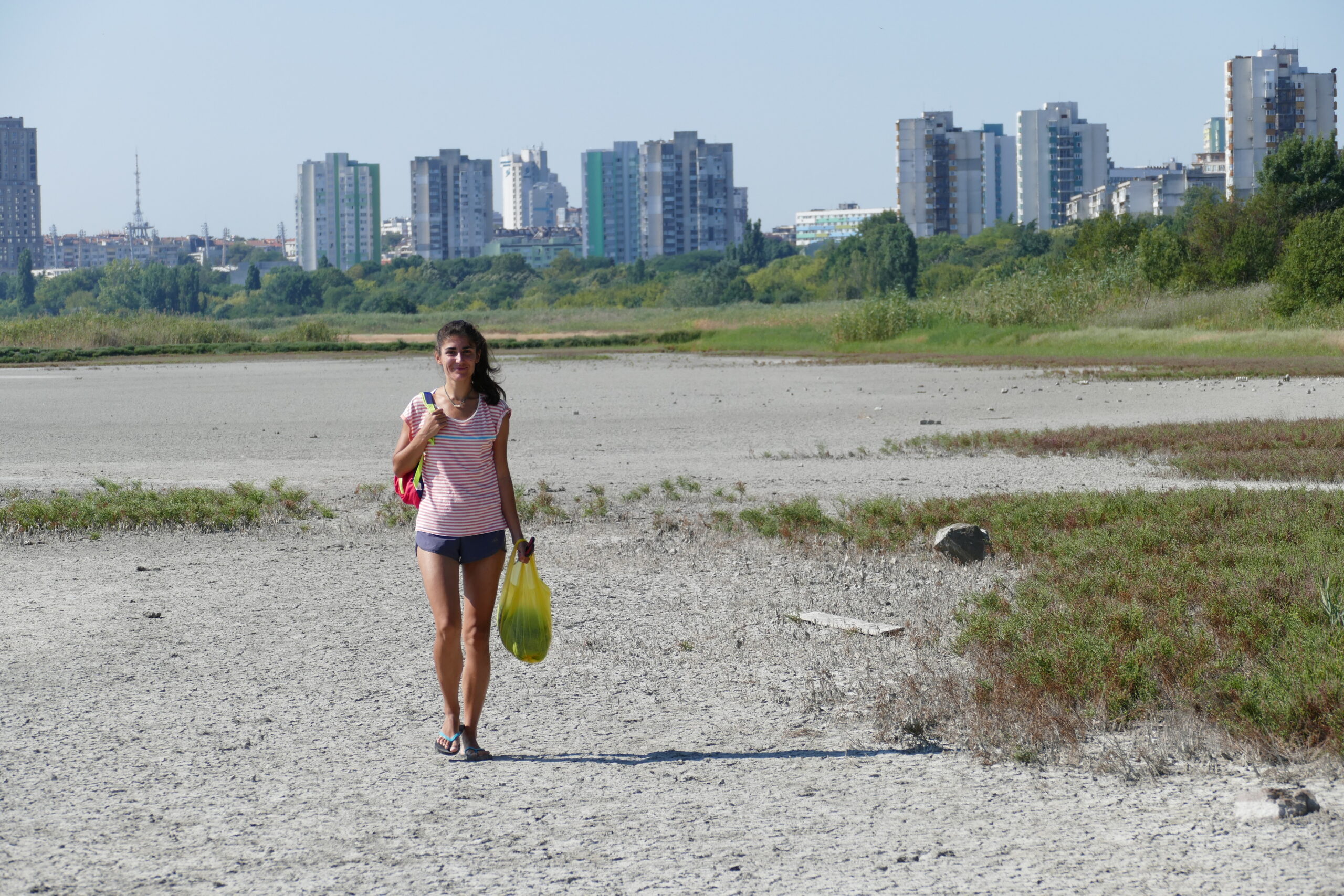
Individually and in partnerships, BBF has developed 15 management plans for protected areas and 15 action plans for endangered species, as well as the documentation for the declaration of new nature parks, protected sites and Ramsar sites. The organisation also actively works on EU-funded projects on all kinds of topics like protected area management, endangered species protection, education, communication, stakeholder engagement, policy work and public campaigns. For example, one of BBF´s ongoing projects is the Game On! project, which we previously learned about from CEEweb in Budapest. These projects vary in size and duration, and thus don´t offer long-term financial stability. Jordanka tells us that it has been quite challenging for Bulgarian NGOs to secure funding from national sources, and frankly, we are not surprised.
The political situation in the country seems similar to quicksand. On the very day that we entered the country, the current government, formed only seven months ago, resigned after receiving a vote of no confidence. Like other post-socialist countries in eastern Europe, Bulgaria found the transition to capitalism not as easy as hoped. And nature conservation was not a priority during those unsteady times.
The sale of dehydrated Salicornia salt is one example how BBF explores sustainable business ideas. Teaming up with local producers, BBF has also recently launched a series of locally sourced salt products, such as salt chocolate and cosmetics, as well as nature artwork and jewellery. BBF receives a portion of the profits from these products, and they use them for concrete conservation actions. Jordanka and Gloria tell us that the organisation is only starting to explore such possibilities, but they already have many ideas. They hope for success and good feedback, as this path has multiple benefits. The collaboration of environmental organisations and local producers supports the development of a local, sustainable economy, it raises awareness for the natural value of our environment and provides an additional source of funding for conservation actions. We love such initiatives, and done right, people can financially support conservation, while getting something in return.
Uniting to save what is left
As nature protection cannot be divided from politics, it has also been strongly influenced by the past years of political turmoil in the country. In response, throughout the last years, civic movements have mushroomed in the country to protest against various threats to the environment.
Jordanka tells us about the coalition named ‘For the Nature’. In 2007, this coalition, co-established by the Bulgarian Biodiversity Foundation, united civic organisations all across the country, giving rise to a series of environmental campaigns in the upcoming years. For example, the coalition members pushed for the expansion of the Natura 2000 network to include 34% of Bulgaria’s territory instead of the initial government proposal of only 5%. In 2012, Facebook campaigns brought thousands of people onto the streets of Sofia and other towns to stand up against the controversial practice of fracking to extract natural gas. And successful community efforts such as ‘Save Karadere’ and ‘Save Irakli’ have prevented massive construction plans on the last pristine beaches of the Bulgarian Black Sea coast. This growing coalition has enabled the environmental sector of Bulgaria to grow stronger – with specific campaigns, but also through exchanging knowledge and providing expertise.
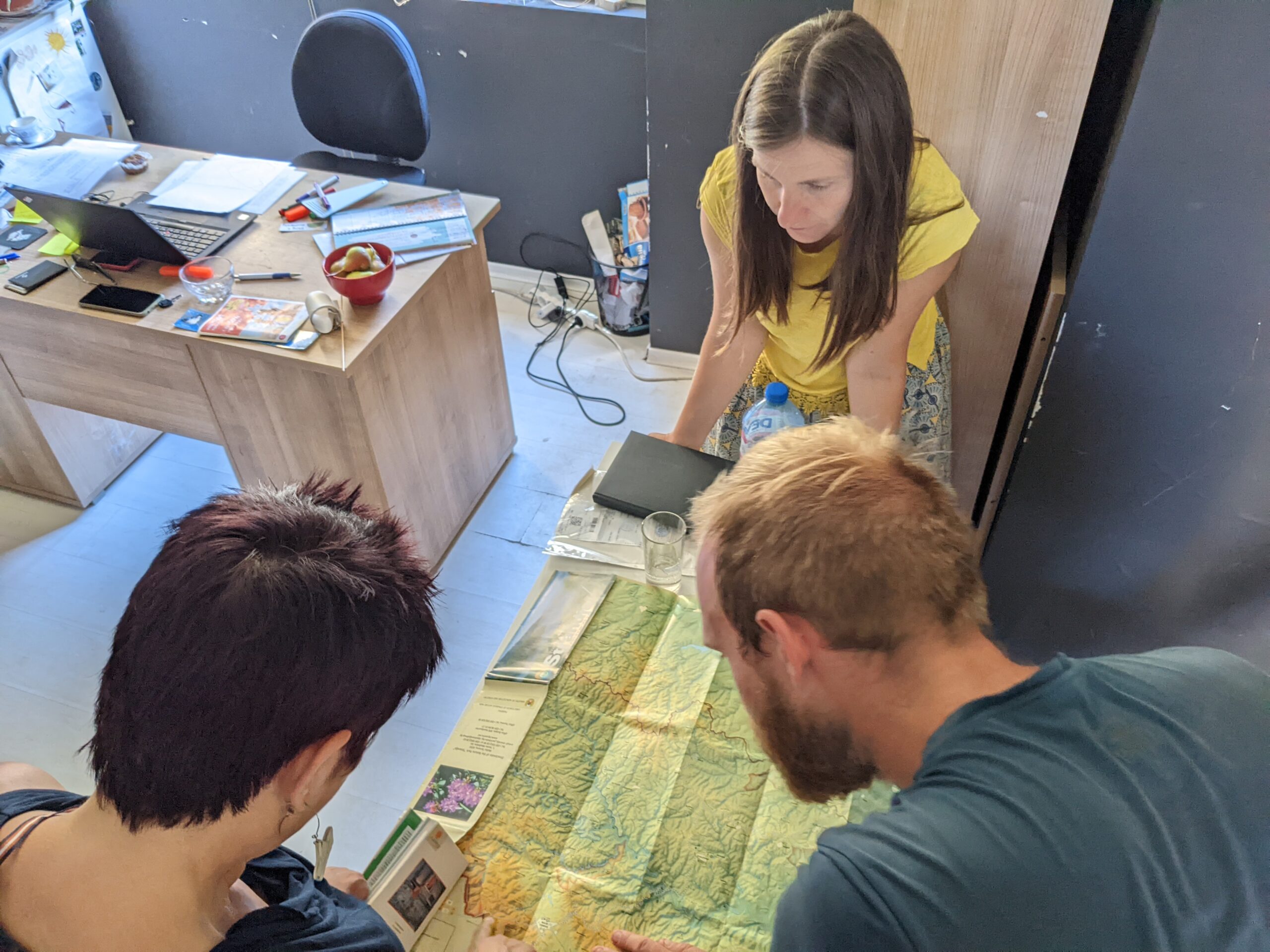
We have heard again and again that one of the biggest challenges in the conservation sector is keeping good experts on board, without sufficient funding. Therefore, ‘For the Nature’ aims to create some kind of safety net, to help professionals create connections helping them to stay in the field even when employment opportunities are scarce.
The annual Biodiversity and Climate Awards
The third activity of BBF that caught our attention is the annual Biodiversity and Climate Awards, with the 11th edition happening just a few days after our visit. Established way back in 2006, the Biodiversity and Climate Awards give well-deserved recognition to people who make nature protection their mission and way of life. Jordanka tells us that this is the only such initiative in Bulgaria which recognizes and promotes the success of activists, organisations, politicians, businesses, media, institutions, and experts who contribute with their work towards nature conservation and climate change mitigation. Winners are awarded in the following categories:
- Most successful campaign related to biodiversity conservation and climate
- Best journalistic material related to Bulgarian nature conservation and climate change
- Politician who is most dedicated to Bulgarian nature
- Nature- and climate-friendly responsible businesses
- International expert with a contribution to Bulgarian nature
- Nature activism
Apart from providing recognition and publicity, the event is also a great platform for nature enthusiasts to get to know each other, network and develop new collaborations.
A green revolution
The efforts of BBF, Green Balkans and other NGOs put nature in the focus of Bulgarian citizens. In the transition period after the collapse of communism, development plans skyrocketed, and public resources were plundered by political and business elites. As a result, many citizens became deeply disillusioned with the democratic process. Environmental activism made them go out to the streets and stand up against the irreversible destruction of natural resources.
The ‘For the Nature’ coalition, as well as clever events such as the Biodiversity and Climate Awards further continue to strengthen the environmental protection community in Bulgaria.
Testing the waters of entrepreneurship makes NGOs more resilient, and offers people the chance to integrate nature-friendly products into their everyday life. For the customer, it might not seem to make a difference to purchase such products, but just like millions of grains of salt form lake Atanasovsko, such projects are the grains of conservation, that eventually protect our natural environment – and with that, us humans equally – from further destruction.
